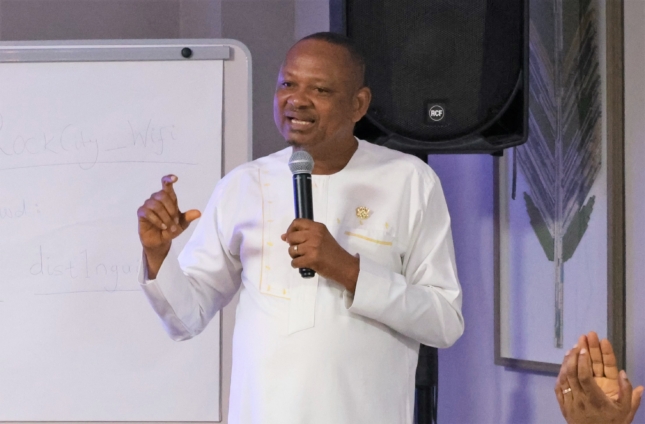The Health Ministry wants a strong collaboration with academia to prepare graduates for meaningful contributions to the health sector.
Director of Human resources, Dr. Kwesi Asabir observed the gap between academia and Ministry has produced graduates with misplaced roles.
“At times, there’s that barrier between academia and practice. Academia will come out with appropriate ideas but the implementer, ministry is cut off. So people go through an excellent programme, they come to the ministry and we tell them, we don’t have a place for you,” he revealed.
Dr. Asabir made this comment at a retreat organized by Mastercard Foundation Africa Higher Education Health Collaborative in Kwawu.
The primary objective of the Mastercard Foundation Africa Higher Education Health Collaborative is to build and strengthen the capacity of healthcare students and professionals to meet the growing demand for Primary Health Care (PHC) in Ghana.
KNUST is one of the eight partners of the Higher Education Collaborative in Health with the aim to contribute to all three pillars of the health strategy: Health Employment, Health Entrepreneurship, and Health Ecosystems.
The Health Entrepreneurship pillar aims to develop an entrepreneurial mindset and culture that supports entrepreneurs to create meaningful innovations and employment opportunities in the health sector.
The Health Ecosystem pillar also aims to train and prepare a new generation of talented professionals with the broad sets of skills required to drive equitable and inclusive growth.
The Health Employment pillar also aims to expand and improve current capacities to train primary healthcare workers. This workshop is under the auspices of the health employment pillar.
Dr. Asabir stressed the need to approach health as business for sustainable economic development.
“We always think of it as a social sector. We should look at healthcare as a business venture. If the population is not healthy, we can develop a nation,” he said.
The 3-day retreat provided the platform to forge effective strategies to fulfil the Collaborative’s ideals in the coming years.
The Principal Investigator of the Africa Higher Education Health Collaborative, Prof. Ellis Owusu-Dabo emphasized the importance of equity and diversity in the operations of the Collaborative.
“For the Collaborative, issues of gender and persons with disabilities are very critical to us. It’s important we put some of these things into action as a country,” he said.
Latest Stories
-
Actress Kalsoume Sinare named Ghana’s ambassador to Spain
20 minutes -
Nkyinkyim says band music pays, but only with proper investment
1 hour -
Ecobank-JoyNews Habitat Fair: Day 3 promises mouth-watering discounts and great sales
1 hour -
Parents now request music lessons for their children from us – Nkyinkyim band
1 hour -
Arthur K slams NPP for ‘acting in the interest of a small cabal’
1 hour -
Veronica Kumi Yeboah Organises Career Guidance Fair for Students in Tano North
2 hours -
World Refugee Day: Ghana, three others host 160,000 refugees and asylum seekers – EU
2 hours -
Trump calls US strikes on Iran’s nuclear facilities ‘spectacular success’
2 hours -
Asantehene’s son to chart future in Astronomy at Wesleyan University
2 hours -
Mpox crisis: 71% of cases concentrated in Western Region
3 hours -
FIFPRO condemns Geremi Njitap ban, urges FIFA and CAF to act
3 hours -
Samuel Eto’o bans former teammate Geremi Njitap for five years
3 hours -
Police arrest 8 at Ayanfuri over galamsey, illicit drugs
5 hours -
Ghana Immigration Service issues warning on fraudulent recruitment schemes
6 hours -
NPA proposes tougher punishment to crack down on illegal fuel stations
6 hours

